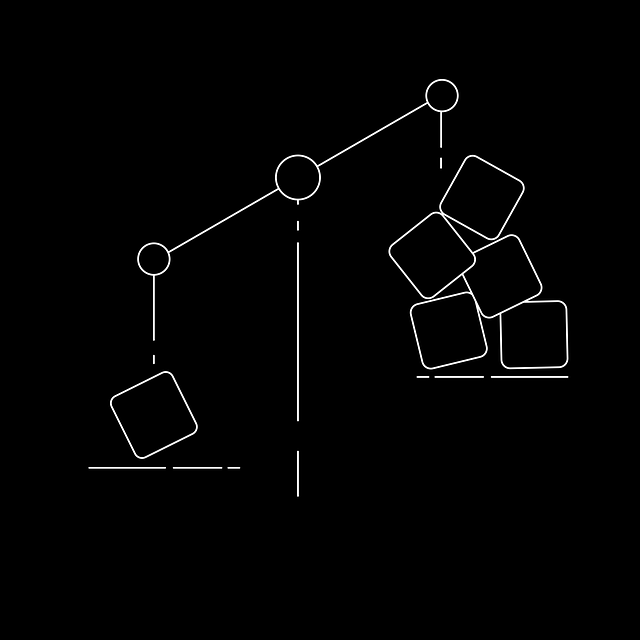Antitrust violation cases aim to maintain fair competition by combating practices like price-fixing and market division that harm consumers. However, prosecutorial misconduct and ethical violations pose significant challenges in these legal battles, impacting not just individuals but businesses and consumers. To prevent antitrust violations, a multi-faceted approach is required: stricter data sharing regulations, enhanced internal compliance programs within companies, fostering ethical conduct, and implementing regular audits to catch misconduct early. These measures are crucial for upholding the integrity of antitrust laws and ensuring a level playing field in today's complex economy.
“Antitrust violation cases are a critical aspect of maintaining fair market competition. This article delves into the intricacies of these legal battles, starting with a foundational overview of antitrust laws and their purpose. We explore key issues like prosecutorial misconduct and ethical violations, highlighting their impact on justice.
Furthermore, we discuss strategies to prevent future violations through comprehensive reforms and best practices for compliance, offering valuable insights for both legal professionals and businesses.”
- Understanding Antitrust Violation Cases: The Basics
- Prosecutorial Misconduct: Ethical Dilemmas and Consequences
- Preventing Recurrences: Reforms and Best Practices for Compliance
Understanding Antitrust Violation Cases: The Basics

Antitrust violation cases are legal battles aimed at preserving fair competition within markets. These cases arise when businesses engage in practices that limit or distort competition, such as price-fixing, market division, or abuse of dominant market position. The primary objective is to protect consumers from harmful effects, like higher prices and reduced product variety.
Understanding the dynamics involves recognizing that these are complex legal matters. Prosecutorial misconduct and ethical violations can significantly impact outcomes. In cases involving white collar and economic crimes, achieving extraordinary results often hinges on meticulous investigations and robust legal strategies. Whether dealing with corporate or individual clients, effective representation requires a deep understanding of antitrust laws and their applications, ensuring fairness and upholding the integrity of the system.
Prosecutorial Misconduct: Ethical Dilemmas and Consequences

In the realm of antitrust litigation, prosecutorial misconduct presents a complex ethical dilemma with significant consequences. Attorneys general and prosecutors, tasked with upholding the law, must navigate intricate legal landscapes while ensuring fairness and integrity throughout all stages of the investigative and enforcement process. However, pressure to secure convictions can sometimes blur ethical boundaries, leading to issues like overreach, selective disclosure, or misuse of evidence—all of which erode public trust and undermine the very purpose of antitrust legislation.
These misconduct cases span across the country, highlighting the need for robust oversight in white-collar and economic crimes enforcement. The impact is far-reaching, affecting not just the accused but also the broader business community and consumers. Ethical violations can skew competitive markets, distort consumer choices, and ultimately hinder economic growth. Therefore, addressing prosecutorial misconduct is crucial to maintaining a level playing field, preserving market integrity, and ensuring that antitrust laws serve their intended purpose in today’s complex economic landscape.
Preventing Recurrences: Reforms and Best Practices for Compliance

Preventing recurrence of antitrust violations is paramount to maintaining a fair and competitive market. Key reforms include enhancing transparency through stricter data sharing regulations and improving legal frameworks that facilitate quicker identification and punishment of offenders. Companies must adopt robust internal compliance programs, regular training for employees on competition law, and independent reviews to mitigate risks.
Beyond structural changes, fostering a culture of ethical conduct is essential. This involves promoting honest business practices, discouraging collusion, and ensuring decisions are based on market considerations rather than hidden agendas. Regular audits and oversight mechanisms can help catch instances of prosecutorial misconduct and ethical violations early on, avoiding indictment for his clients across the country.
In conclusion, understanding antitrust violation cases, particularly instances of prosecutorial misconduct and ethical violations, is paramount in maintaining fair market competition. While these cases can have severe consequences for businesses, they also serve as critical learning opportunities to strengthen compliance measures. By implementing robust reforms and best practices, companies can navigate the complexities of antitrust laws more effectively, fostering a more transparent and competitive business landscape.






